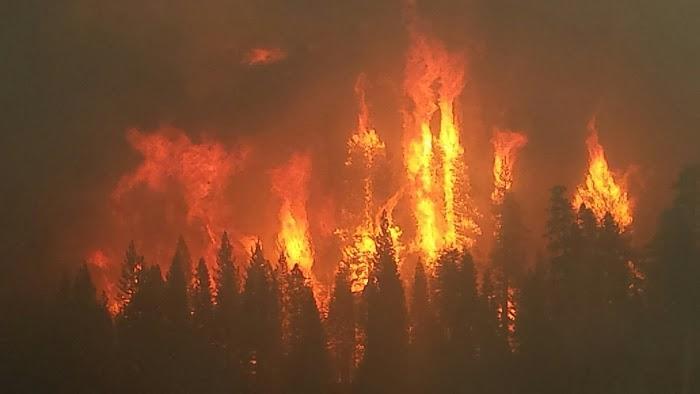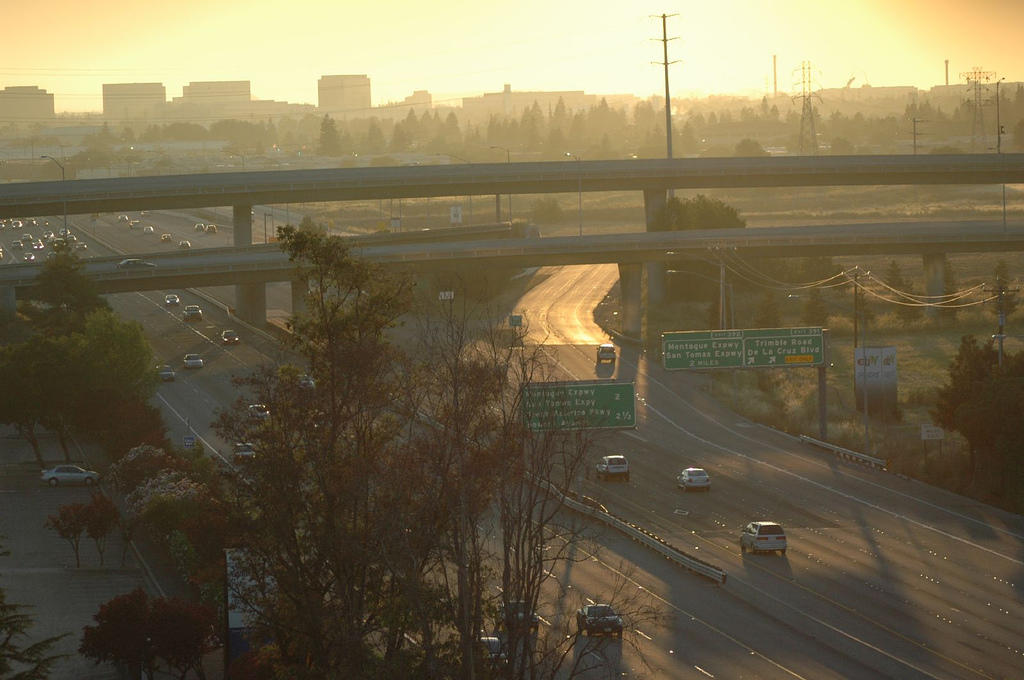Latest News and Updates from Audubon in California
California Condor. Photo: Scott Frier/USFWS
Here's the first web ad for Measure AA, which will raise $500 million to restore wetlands in San Francisco Bay. Learn more here.
A new study shows that natural land in the American West is diminishing at a faster rate than anyone could have expected:
"From 2001 to 2011, an area totaling 4,321 square miles -- or 15 times the size of San Jose, Oakland and San Francisco combined -- was modified by development in the 11 Western states, the report found, with California losing the most natural land, and Wyoming and Utah changing at the fastest rate.
"We are nibbling away at our wild places at a fairly rapid clip," said Mike Dombeck, former chief of the U.S. Forest Service and the U.S. Bureau of Land Management in the 1990s ...
... Their conclusion: Every 2.5 minutes the West loses an area of natural land the size of a football field to human development. And each year, on average it loses 432 square miles, an area nearly the size of Los Angeles."
The Los Angeles Times' Steve Lopez is really enjoying this whole controversy with the California Coastal Commission. Today, he wonders aloud whether Gov. Brown has noticed anything fishy with his appointed body:
"For months, I’ve been hearing the same question over and over from readers following the ongoing festival of the absurd at the California Coastal Commission. Where in the name of the father, son and holy coast is Gov. Jerry Brown, and why doesn’t he say or do something?
Good question.
Brown’s Coastal Commission is thrashing about, and lawmakers have rushed to the rescue with several reform bills.
But the governor is quieter than a California field mouse."
For its part, Audubon California continues to support a number of bills aimed at reforming the Coastal Commission. Among these are Assembly Bill 2002, which requires lobbyists to adhere to the same regulations as they would when lobbying other public entities; Senate Bill 1190, which would ban all ex parte communication between commissioners and people with business before the Commission; and Assembly Bill 2616, which would add three new seats to the Commission representing communities disproportionately suffering from pollution and other issues of environmental justice.

The U.S. Department of Agriculture is warning of a high risk of intense fires in 2016 thanks to a combination of ongoing drought and a large number of dead trees in the Sierra.
Agriculture Secretary Tom Vilsack said during a briefing on the fire season in Washington, D.C., "“You’ve got 40 million dead trees. You’ve got 40 million opportunities for fire. You’re looking at a very serious situation.”
While fire is a natural occurance in California's open spaces, intense fires can have a number of bad consequences for birds and other wildlife. Not only can large swaths of habitat be wiped out, but the intensity of the blazes can actually cause the habitat to change type -- which leaves little opportunity for native birds to return.
The State of California indicted Plains All-American Pipeline on 46 criminal charges related to last year's oil spill on Refugio State Beach. From The Los Angeles Times:
“This is the first step in holding Plains accountable, and we are committed to putting all the resources that are necessary into seeing this case through,” [State Attorney General Kamala] Harris said at a Santa Barbara news conference.
“In this state, we value our environment, we value our pristine coastal communities, we value the precious wildlife and the oceans that we are proud to call a big part of California. Anyone that violates the law … is going to be held accountable,” she said.
Read more.
The California State Senate last week approved importat climate change legislation that addresses the role that farms and other working lands play in reaching the state's goals for reducing carbon emissions. In particular, Senate Bill 1386 will make it state policy that protecting and managing natural and working lands is key to meeting California’s climate change goals, and directs all relevant state agencies to consider this policy when conducting their work.
With news that representatives of California, Arizona, and Nevada are negotiating potential cutbacks to relieve water usage from the overtaxed Colorado River, the water district holding the largest rights to Colorado River water said that issues at the Salton Sea need to be resolved before any settlement regarding the Colorado River.
News emerged in late April of ongoing negotiations among representatives of California, Nevada, and Arizona about the use of water from the Colorado River, which is on the verge of a major shortage. While details of the negotiations aren't clear, the goal has been to keep more water in Lake Mead to stave off a declaration of a shortage.

Despite significant improvements as a result of emissions regulations, air pollution continues to be a significant problem for Californians, according to data recently released by the American Lung Association. The organization’s 2016 State of the Air report concludes that seven of the ten worst cities in the United States for air pollution are located in California. Los Angeles leads the nation for ozone pollution, while Bakersfield is the worst in the nation for particulate pollution. The report adds that eight out of ten Californians live in an area with unhealthful air.
While the ramifications of this are clear for public health, air pollution of this type has clear ramifications for climate change. It’s no wonder that a number of the climate-related bills working their way through the State Legislature this year address the connection between climate change, pollution, and public health. The best example is Senate Bill 1383, authored by State Senator Ricardo Lara, which seeks to reduce 50 percent of black carbon emissions and 40 percent of both methane and fluorinated gas (F-gas) emissions in California by 2030.
The National Audubon Society recently found that 170 species of birds in California will be at risk in coming decades due to climate change. These birds are also threatened by air pollution.
Our newsletter is fun way to get our latest stories and important conservation updates from across the state.
Help secure the future for birds at risk from climate change, habitat loss and other threats. Your support will power our science, education, advocacy and on-the-ground conservation efforts.
Join the thousands of Californians that support the proposed Chuckwalla National Monument.